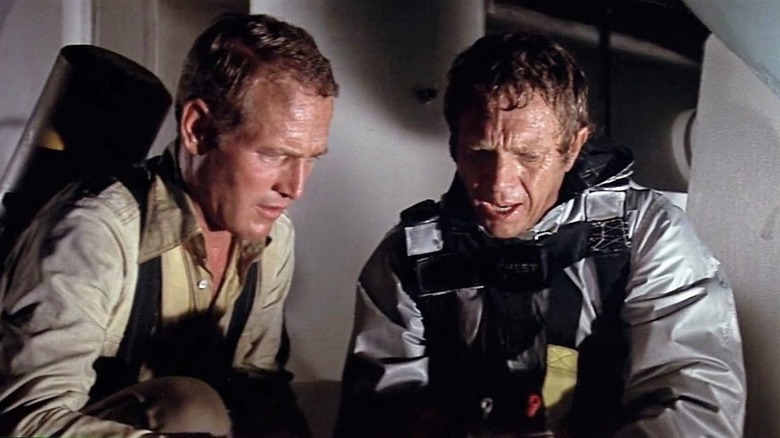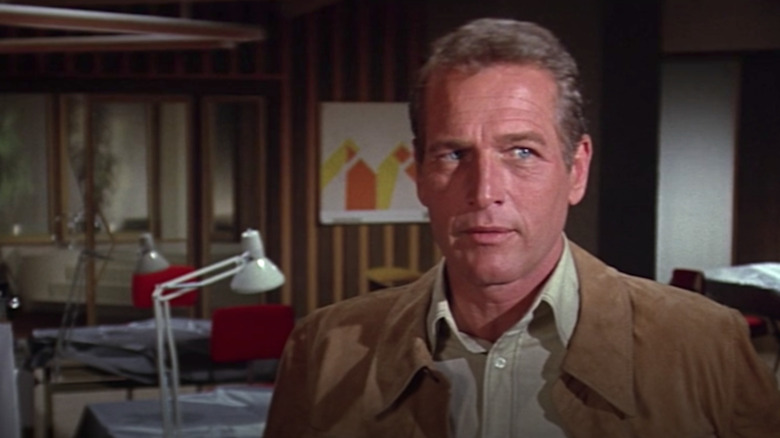Steve McQueen And Paul Newman's Rivalry Ignited With The Towering Inferno
No one took movie stardom more seriously than Steve McQueen. Once the actor became a certified box-office draw in the early 1960s on the strength of "The Magnificent Seven" and "The Great Escape," he got incredibly picky about his projects. McQueen knew his tough, taciturn type, and he rarely played against it. He was also disinclined to play anything other than the lead, and he demanded to be paid at his market value.
This proved problematic when he signed on to play heroic fireman Thomas O'Halloran in Irwin Allen's "The Towering Inferno." All-star disaster movies were quite the rage in the early 1970s, and were not looked down upon critically. George Seaton's 1970 adaptation of Arthur Hailey's "Airport" earned 10 Academy Award nominations, with Helen Hayes winning Best Supporting Actress. Three years later, Ronald Neame's "The Poseidon Adventure" racked up eight nominations, and two wins (for Best Original Song and an award for Special Achievement in Visual Effects). These were big movies that promised million-dollar paydays and a bit of prestige. So when Allen approached McQueen, he wanted in.
What he didn't want, however, was to be upstaged. With Paul Newman onboard to play architect Doug Roberts, McQueen took aggressive measures to protect his onscreen image.
A tale of towering egos
According to the AFI Catalog's history of the production, McQueen exerted his power early by rejecting the role of Roberts in favor of O'Halloran, believing the latter character would be "showier." He wasn't wrong, but he sought further insurance against McQueen, who was red hot coming off of 1973's Best Picture-winner, "The Sting." It wasn't enough to be pulling down the same $1 million salary as Newman; McQueen wanted O'Halloran to have the same number of lines as Roberts.
It was basically game-on between the stars at this point. McQueen was the epitome of Hollywood cool in large part because he was a car- and motorcycle-racing daredevil. As a result, he demanded to do as many of his stunts in the film as possible. Newman did likewise, and the men did not come through their petty fit of one-upmanship unscathed. Newman sustained a "moderate burn," while McQueen turned his ankle severely enough that he had to be seated for several days of shooting.
Was it worth it? Out of eight Oscar nominations, "The Towering Inferno" won three for Best Original Song, Best Editing, and Best Cinematography (the last honor being an absurd victory in the year of "Chinatown," "Lenny," and the unnominated "The Godfather Part II"). But in retrospect, the disaster formula was beginning to wear awfully thin. Allen lacked the tension-ratcheting skill of Neame, and the celebrity gawking is especially egregious (the nadir being a wooden O.J. Simpson as the building's security chief). Four years later, Allen nuked the genre with the killer-bee epic, "The Swarm," though not without humiliating the legendary likes of Olivia de Havilland, Fred MacMurray, and Henry Fonda.

